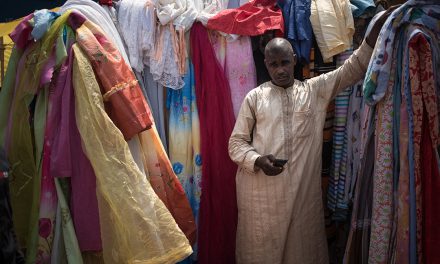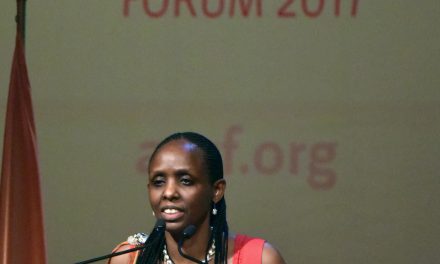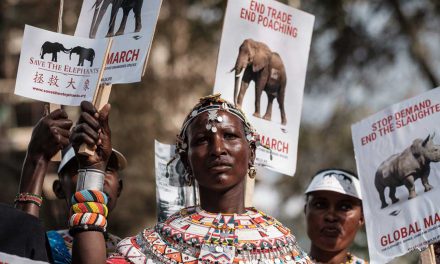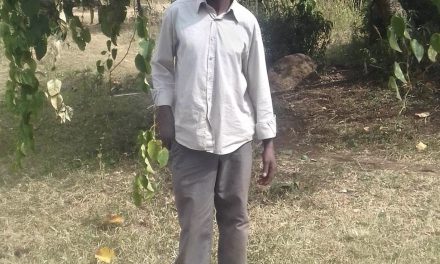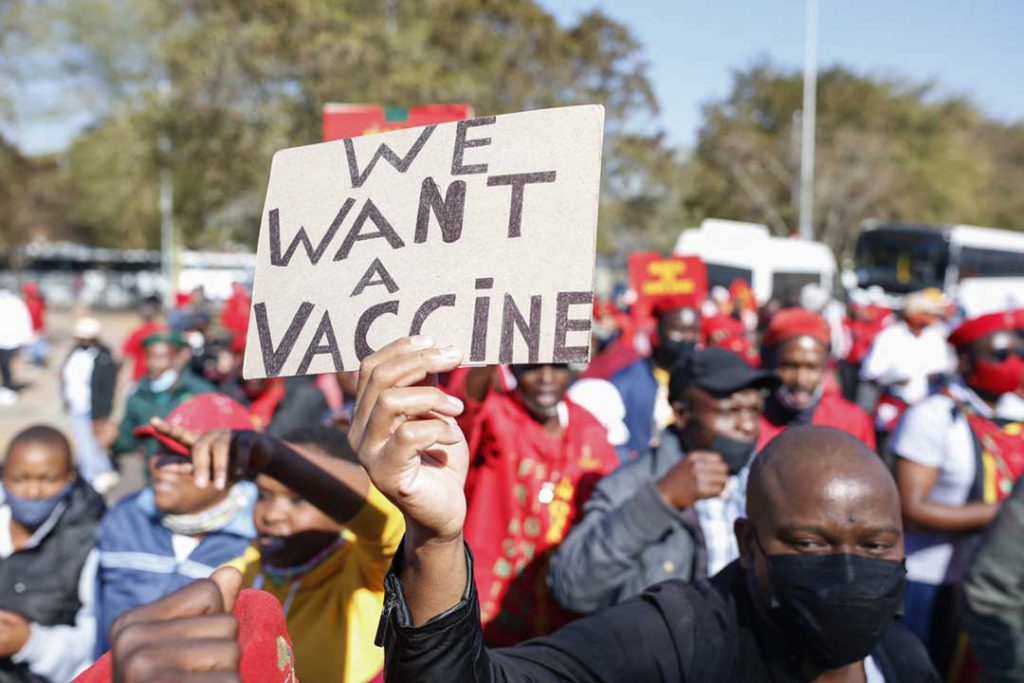
A member of the Economic Freedom Fighters (EFF) hold a sign with the word We Want a Vaccine as they march to the South African Health Products Regulatory Authority (SAHPRA) offices in Pretoria, on June 25, 2021. They are demanding that vaccines from Russia and China be supplied to South Africans. – Hundreds of protesters rallied in South Africa’s capital Pretoria on June 25, 2021 calling for the country’s medicines regulatory body to give the greenlight to China’s Sinovac and Russia’s Sputnik vaccines, amid a third coronavirus wave. (Photo by Phill Magakoe / AFP)
In November 2020, the World Health Organization (WHO) Regional Office for Africa convened the Fifth Health Sector Directors’ Meeting across its 47 member states. Aptly, the focus was on building resilient health systems in the WHO Africa region, given the effects of COVID-19 on already struggling African health systems, and the need to respond and rebuild.
Resilience is by no means a new concept, although its application to health systems is fairly recent. At its core, it refers to the ability of a system to respond to shocks while maintaining its normal functions, in this case essential health service provision. This has been challenging for African health systems, many of which, according to WHO statistics, already had some of the most dismal rates of health resources per capita in the world pre-COVID, and were facing high disease burdens.
While the predicted blanket devastation across the continent has, fortunately, not occurred, Africa’s economies and health systems have been badly hit. Reported decreases in the use of routine immunisation and maternal health care services, and disruptions in services for HIV, TB and malaria, indicate that many children and adults across Africa have not accessed essential health services since the onset of COVID-19.
More broadly, the pandemic has interrupted the long-term visions of African countries, such as the Africa Agenda 2063. According to the International Monetary Fund, we may have lost a decade of human development. There is clearly a need to build systems resilience in Africa. However, as argued by both the WHO group and the African Union (AU), Africa needs to go beyond this goal, to strengthen fragile health systems in the long run and make them more equitable.
Arguably, these interlinked goals cannot be tackled in isolation. But what can African countries and health systems do, and learn from this pandemic shock, to achieve this? There is certainly no silver bullet, and any attempts will require consistent and long-term effort. Drawing from what we know of the current situation, the experience of past pandemics and the multiple recommendations of global health actors, I would argue that this would require simultaneously focusing on five elements: funding, optimising, creating, uniting and strengthening.
Let’s start with funding. One recommendation that emerged from the 2020 WHO Regional Committee for Africa was that member states review and identify much-needed health system investments, and find ways to increase public funding for these. COVID-19 has shown up the centrality of health in our development agenda, and how many other sectors are dependent on the health sector. Moving forward, it would be good to maintain the increased focus on domestic funding for health infrastructure, improving laboratory facilities and incentivising health care workers.
The challenge, of course, is that country level funding is already limited, particularly in lower income countries, and the COVID-19 crisis has further reduced revenue. This forces countries to cover more expenditure through borrowing, which is unsustainable. There is unfortunately no panacea here. Difficult choices will have to be made around reallocating resources within countries, and inevitably avenues for further international support will need to be explored.
WHO Director-General Tedros Adhanom Ghebreyesus has called on the international community and financial institutions to consider measures such as debt relief and restructuring to support poorer countries with social spending and avoid a debt crisis. Moving forward, we will need effective regional and global mechanisms to cross-subsidise country health systems, and to ensure more equitable access to vaccines and medicines. Ensuring that scarcer resources go a longer way will also inevitably require enhancing the efficiency of available funding, whether public, donor, private or out of pocket.
It is widely agreed that available resources for health in Africa could be better used through restructuring, prioritising and better management. Some researchers have argued that COVID-19 has provided an opportunity to expose the weaknesses of health systems that need to be most urgently addressed.
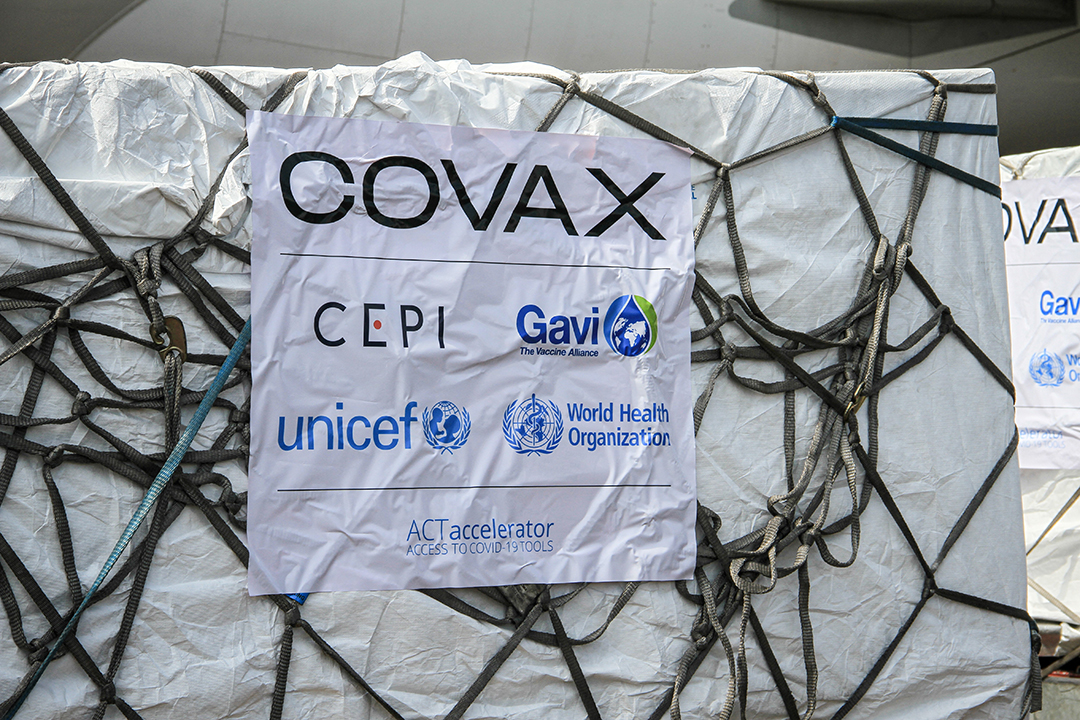
Boxes of Oxford/AstraZeneca vaccines are unloaded from a plane at Entebbe airport in Uganda after their delivery as part of the UN-led Covax initiative to assist poorer countries to receive the medicine, March 2021. Photo: Tina Smole/AFP
The AU’s June 2020 joint meeting of the ministers of health and finance reinforced commitments to both increase domestic spending in health, and improve the efficiency and effectiveness of health spending. Reforms will be necessary to drive both efficiency gains and rethink equity, with a focus on primary health care.It has been said that crises catalyse creativity.
The level of creativity and innovation from Africa in response to the COVID-19 crisis in a situation of scarce resources has, arguably, been unprecedented. Examples from the health sector include: the development of rapid and low-cost COVID-19 diagnostic tests, pool testing of blood samples, and local production of items such as portable washbasins, 3D personal protective equipment (PPE), and economical ventilators.
Digital solutions have been central, and included digital tracking and tracing apps, telephone triage and multifunctional medical robots to lessen the burden on healthcare workers, and artificial intelligence to simultaneously communicate with thousands of callers through disease control centres.
Drones have been employed to serve multiple purposes: for alerts and announcements, to transport PPE, blood samples and COVID-19 test kits, and to promote health education to more isolated populations. Digital medicine was taken to a new level in Gambia, as described in an article by clinical researcher Oghenebrume Wariri and colleagues, through a “virtual ward”.
This system provides home-based clinical support for selected patients with mild or moderate COVID-19, to avoid increasing pressure on hospital beds. Beyond new technology there have also been adaptations to the management of essential health services, such as community involvement in information dissemination and contact tracing, mobile testing booths, stigma reduction campaigns and dispensing of long-term supplies of HIV and TB medication.
Countries that have made these adaptations appear to have fared better at weathering the COVID-19 storm. These innovations, and the digital revolution, have done something extraordinary: they have allowed us to “fast forward”, to reimagine services and service delivery to be more accessible and efficient. We now have to make that a reality. In an article published in January this year in the African Geographical Review, geographer and researcher Joseph Oppong and colleagues Yvonne Dadson and Hilary Ansal argued that African countries now have an opportunity for unparalleled and lasting transformation in health care and the economy.
However, this will necessitate adequate policy responses to support the adaptation of innovative products and approaches to local contexts, and their mainstreaming and scaling up within broader health and manufacturing systems. This will require political vision and collaboration at various levels. COVID-19 has shown us the importance of being united, of embracing all actors to partner both locally and globally.
African countries need to build on some of the positive trends in the COVID-19 response: the greater involvement of communities in health decisions and delivery; the unprecedented collaboration between public and private health systems and actors; increased cross-sectoral collaboration within countries; and the transnational collaboration that the pandemic has arguably fast-tracked.
Good examples are the African CDC’s collaboration with countries on the continent to build medical supplies, the AU’s COVID-19 response fund and platform for joint procurement, and agreements between South-African and US-based pharmaceutical companies that allow for the manufacture of COVID-19 vaccines on the continent. The Access to COVID-19 Tools (ACT) initiative – of which COVAX is the vaccine pillar – deserves a special mention as an unprecedented global multilateral partnership to accelerate the development and equitable distribution of tests, treatments and vaccines needed to end the COVID-19 pandemic.
Moreover, a united Africa opens many doors; to better supplies procurement, greater pressure for good country-level health governance, more research and development to reduce dependence on imports, and partnerships to build stronger research capacity. But also, importantly, as a collective Africa can have a stronger voice and influence on global diplomacy.
As I and various other authors have previously argued, many of the challenges facing African countries can only be addressed through a different set of global governance mechanisms, where these countries have a stronger role in shaping health solutions and ensuring more equitable access to key health products and services. However, strong partnerships in health can only be built on strong foundations, highlighting the importance of strengthening health systems in Africa.
Current frameworks to assess resilience and guide strengthening initiatives, including the WHO’s framework of building blocks and the International Health Regulations (IHR), have focused mainly on material resources and structures. They have overlooked what authors such as senior research fellow in health systems Anna Palagyi and colleagues (2019) refer to as “‘system software”’, such as values, governance and trust, which are vital to the success of emergency responses and public health initiatives.
The COVID-19 pandemic has highlighted the need to strengthen this system “software”, particularly good leadership and increased trust between individuals, providers and leaders. In addition, we need stronger health information systems that will allow us to collect and act on data in a timely manner. There would be work to do on expanding and revising current frameworks and indicators, not only for routine monitoring, but also to assess system resilience and support improvements over time.
Next level steps would be the standardisation of indicators or frameworks across countries, better information exchange and timely joint action, where possible and opportune. These processes could be supported by global health organisations such as the WHO and the Global Fund. As overwhelming as it may be to think about this now, we need to be ready for the next global crisis. We must be better prepared next time to ensure that every child and adult has access to the health care they need, whether or not it is crisis-related.
As indicated at the WHO 2020 Regional Committee, embracing anti-fragility means moving beyond resilience to learn from shocks and better respond in the future. A long-term investment in more resilient and equitable health systems is the only way to achieve this. This will require a recipe of clear goals, more and better-invested resources, trusted and effective leadership, strong local and global collaboration, better information collection and exchange, and a good dose of African resourcefulness and creativity!
Marisa Casale is an Extraordinary Professor at the University of the Western Cape’s School of Public Health (SOPH) and an Associate Member of Oxford University’s Department of Social Policy and Intervention. She is currently leading a work package focused on translating evidence into impact, within the UKRI GCRF Accelerating Achievement for Africa’s Adolescents Hub.


